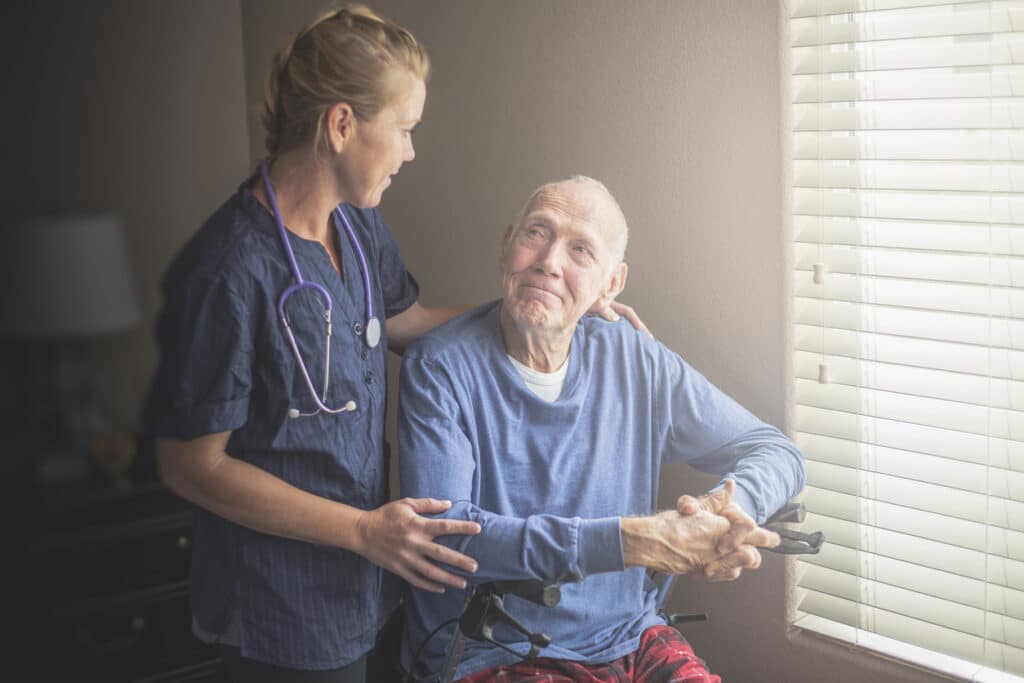
At Unique Hospice, we understand that not all patients want to go to a hospice facility. That’s why we provide comprehensive in-home hospice care services throughout Los Angeles County. Our experienced and compassionate nurses are available 24 hours a day, seven days a week to provide in-home hospice care tailored to your individual needs.
Hospice care is a specialized form of healthcare that focuses on providing comfort and support to individuals and their families facing life-limiting illnesses. Hospice care services are delivered in the home by an interdisciplinary team of professionals, including nurses, certified nursing assistants, physicians, social workers, chaplains, volunteers, therapists, and other health care specialists. The goal of hospice care is to provide physical and emotional comfort for those who are nearing end-of-life.

No, though they are similar. Palliative care focuses on curative treatment and relieving symptoms in individuals who are seriously ill, while hospice care is designed to provide comfort and support to those at the end of their life. While palliative care can be beneficial earlier in an illness, hospice care is usually only initiated when it has been determined that a patient has six months or less to live.
Our primary goal for in-home hospice care is to ensure that our patients are comfortable and have the best quality of life possible. Our certified nursing assistants provide assistance with activities of daily living such as bathing, grooming, and dressing; nurses deliver medication management services; and a variety of professionals work together to address spiritual concerns for all parties. We strive to create a warm and inviting environment in the home, with special attention to managing pain.
At-home hospice care begins with a comprehensive assessment of the patient’s condition and needs. This includes information on physical, emotional, and spiritual wellness. Our team then works together to develop an individualized plan of care tailored to meet the specific needs of each person. Services are provided in shifts around the clock in order to ensure that full care is available whenever needed.

At-home hospice care begins with a comprehensive assessment of the patient’s condition and needs. This includes information on physical, emotional, and spiritual wellness. Our team then works together to develop an individualized plan of care tailored to meet the specific needs of each person. Services are provided in shifts around the clock in order to ensure that full care is available whenever needed.

The process of getting into hospice care is simple. Contact our team and we will help you determine if hospice is right for your family. We will provide all the information you need to make an informed decision on whether this type of care is right for you or your loved one. After contacting us, our team will conduct a comprehensive assessment of the patient and develop a personalized care plan to target the patient’s unique needs.
In order to determine if a patient is eligible for hospice services they must meet certain criteria regarding life expectancy and the need for end-of-life care. Certain conditions that may qualify for hospice care include:
At Unique Hospice, we offer a variety of services for our patients to get the most out of their time during hospice care. We offer medical, spiritual, and emotional services, as well as multilingual care.
At Unique Hospice, we understand the complexities that come with end-of-life care and are dedicated to helping you and your family navigate this difficult journey. Our team of experts provides compassionate support, comfort, and peace of mind during this difficult time. Contact us online today or call (626) 335-7077 to get started with hospice today.